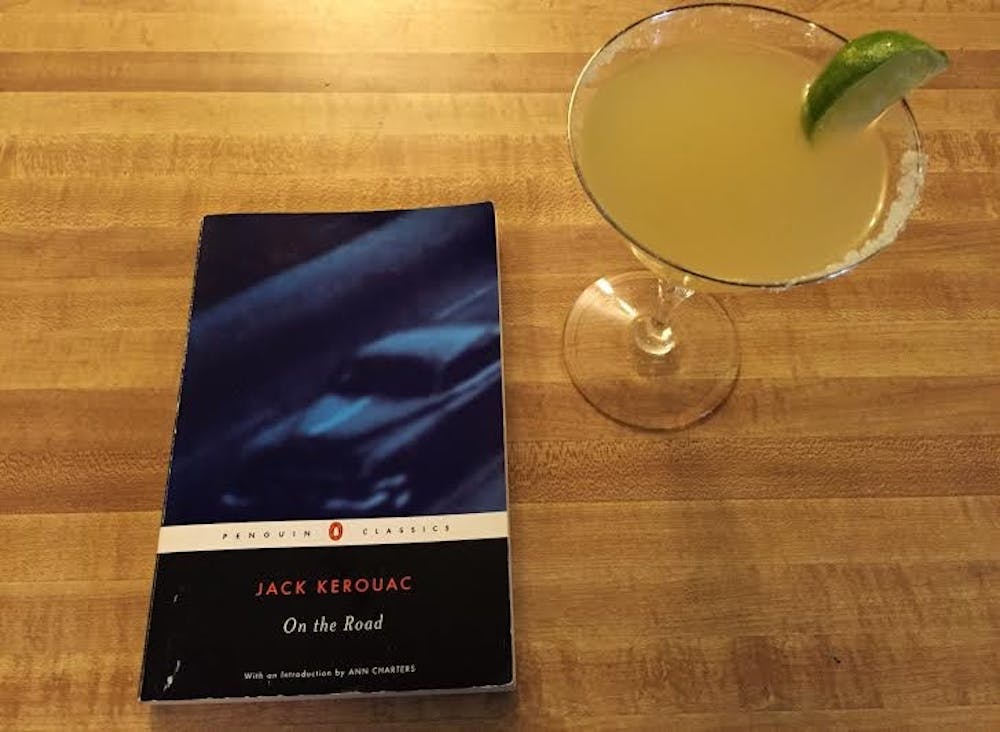Each week reporter Carson Abernethy drinks his way through great works of literature, reviewing books and the booze that inspired them.
Great writers are typically great drinkers, and while it’s hard to ascertain whether the hard stuff helps or hinders an artist’s literary output (with the consensus being the latter), booze has featured in, and inspired, many a great novel.
Jack Kerouac was a writer of the Beat Generation (a name Kerouac coined), a countercultural movement in the 1950s that celebrated Eastern mysticism, drugs, sex, alcohol and rejected traditional societal norms and social constraints.
Kerouac was a lifelong alcoholic, who died from long-term alcohol abuse, and its influence can be strongly felt in his novels (especially in later novels like "Big Sur," where he rather poignantly reflects on the deterioration alcohol has caused). While a preeminent chronicler of America, Kerouac also spent a significant amount of time in Mexico, where he developed a taste for tequila and his signature drink, the margarita.
Kerouac’s margarita is far from the saccharine slushie many would associate it with today. The drink is essentially a derivative of the Sidecar (perhaps the only good thing to come from that horrible period of American history known as Prohibition); substitute the cognac for tequila, the lemon juice for lime, keep the triple sec and you have it. Simple, yet elegant.
Recipe:
- 2 oz. tequila
- 1 oz. triple sec (or Cointreau)
- 1 oz. lime juice
Shake well, straining into a cocktail glass. Enjoy while reading "On the Road," after a few you’ll feel as free as the prose.
The novel recounts, in a loosely fictionalized manner, Kerouac's travels back and forth across America took in the late 1940s, often accompanied by friends.
Prose: 4/5
One of the problems many people have with Kerouac, especially in his later, more experimental novels, are the limitations and awkwardness of his spontaneous prose technique (whatever came to his mind at a particular time was written down). Not everything was profound or well thought out, so with every beautiful sentence comes a few not so great ones.
A lot of it is like a diamond in the rough, you have to wade through a series of ungainly sentences for those moments of sheer brilliance, for example “The only people for me are the mad ones, the ones who are mad to live, mad to talk, mad to be saved, desirous of everything at the same time, the ones who never yawn or say a commonplace thing, but burn, burn, burn, like fabulous yellow Roman candles exploding like spiders across the stars.”
But when Kerouac was on, man he was on. Some of his words have become life mantras of mine, etched onto my mind forever.
Characterization: 4.5/5
Kerouac was not timid like other writers when it came to asserting how much characters were rooted in reality. He unabashedly put his friends and family directly in writing, and if it hadn’t been for his editors, their names would have stayed the same, which makes his characterization so interesting.
He may not have strayed far from reality, but his characters still stand as some of the most interesting.
Dean Moriarty is such a complex character, a flawed hero, voracious womanizer, brimming with the energy and hopes of an entire generation, he almost leaps off the page. Sal Paradise (Kerouac's alter ego in the novel) also serves as the perfect foil for him, almost to the point of worshipping him.
The novel is full of characters, each so different from the other. Kerouac took the brightest minds of his generation and wrote them into his novels.
Cohesiveness: 3.5/5
"On the Road" is split into five parts, only three consisting of road trips with Moriarty, and so it’s a bit fractured. Segments end and pick up a few months or longer later in the novel, and characters drop in and out.
It often feels like a collection of interconnected novellas. But I think this mirrors life on the road quite well; the ups and downs, progress and regress, the flurries of activity followed by long rests. Kerouac uses the dichotomy between his travels and his periods at home to illustrate how life with Moriarty and life on the road most always come to an end.
Relevance: 5/5
I think the best way to judge a work of literature is to reflect on how it informs our lives in the present. Great works are both grounded in their time yet transcend it, and "On the Road" is a good example of this.
It’s one of those books that someone reads in high school or college and it speaks to them. It perfectly describes their feelings and aspirations as they approach adulthood — the allure of the road and freedom, an interest in experiencing life as fully as possible, and a dissatisfaction with the life their parents and society prescribe for them.
Kerouac wrote the novel to capture the Beat Generation, but it really captures any generation, especially Millennials. Sal and his friends were trying to navigate reality just as we all are, whether it's hitchhiking across America or catching the light rail to ASU.
Overall: 4.5/5
"On the Road" is one of the most profound distillations of the Beat movement: the defining cry of an entire generation, a masterful meditation on Americana, a love letter to freedom and the allure of the open road. Few novels have captured a time and a place so convincingly. One of the great pieces of American literature, the novel continues to inspire appreciation for the journey, no matter the destination.
Related Links:
Overdue Book Reviews: What's a young Prince of Denmark to do?
Book Review: 'Moonwalking With Einstein'
Reach the reporter at cabernet@asu.edu or follow @ccabernethy on Twitter.
Like The State Press on Facebook and follow @statepress on Twitter.




